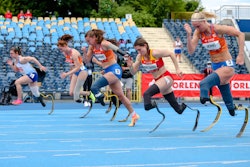Boston University Plans Residency
Program for Foreign Leaders
BOSTON
Boston University plans to launch a residency program for former heads of state from Africa, a project supporters say offers an exit strategy for leaders in need of a way to leave their jobs gracefully.
“There is life after the presidency,” says the Rev. Charles Stith, the former U.S. ambassador to Tanzania who is spearheading the Balfour African Presidents in Residence program.
Stith plans to bring a different African head of state to live at the school every year, targeting the small pool of executives who were elected democratically and agreed to step down from power. Beginning in September, the school would provide a 12-month residency, an undisclosed stipend, a light course load and speaking tours.
“Until you provide an exit strategy that gives … a respectable way to make a living, a way to say ‘I will be able to meet people I knew in the past without holding my head down,’ then there are no incentives to give up power,” Georgetown professor Gwendolyn Mikell, a senior fellow at the Council on Foreign Relations, told The Boston Globe.
The school’s criteria would narrow the pool of eligible candidates.
“I would say there are not more than a handful of living African heads of state who have voluntarily stepped down from power,” says Edmond Keller, director of the Globalization Research Center-Africa at UCLA.
High-profile, democratically elected former leaders such as Nelson Mandela of South Africa and Ketumile Masire of Botswana are too busy. And there are questions about the possibility of bringing figures with troubled pasts to Boston.
“It might be perceived as a soft slap on the wrist after years of misrule,” says Peter Takirambudde, executive director of Africa at Human Rights Watch.
© Copyright 2005 by DiverseEducation.com





















